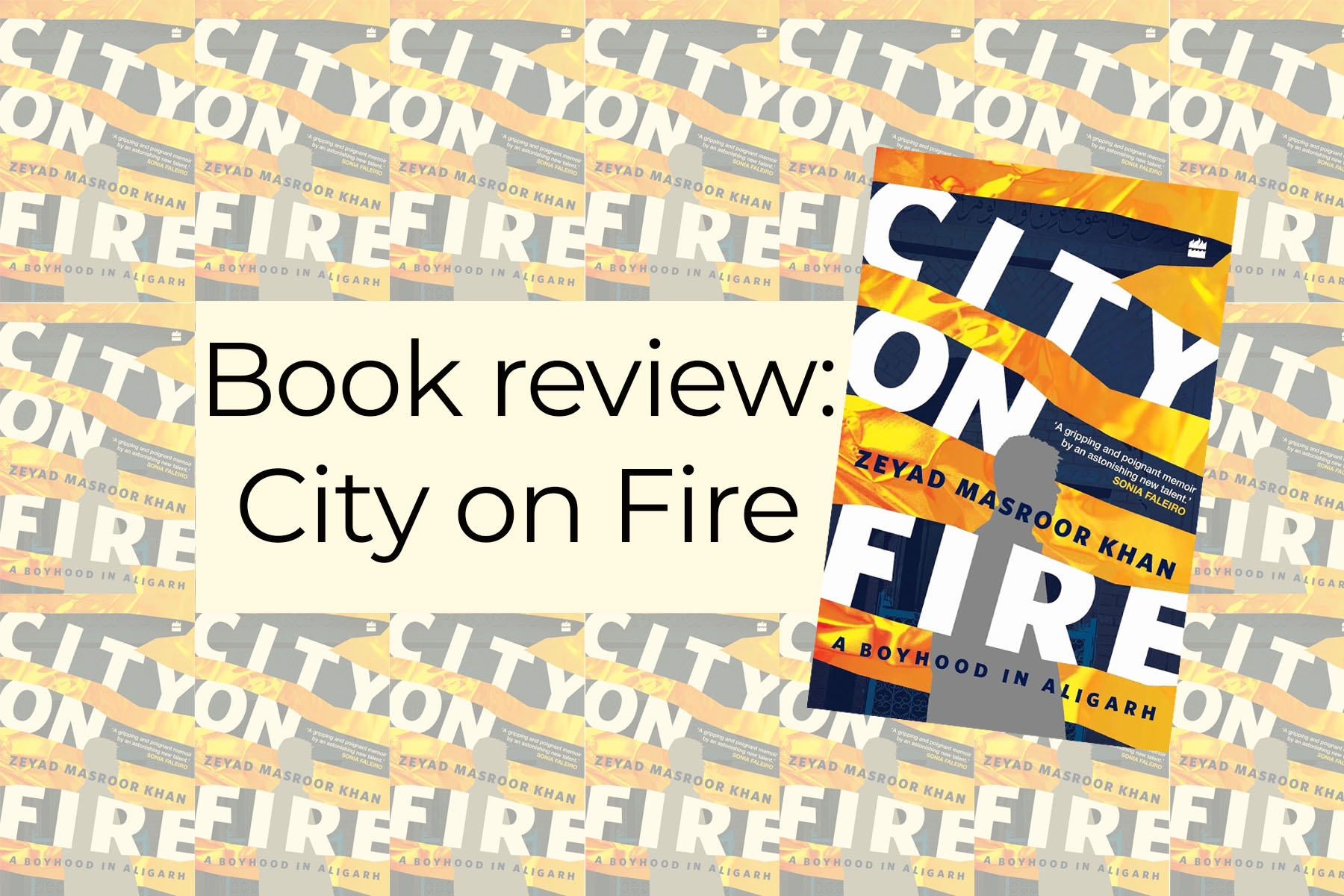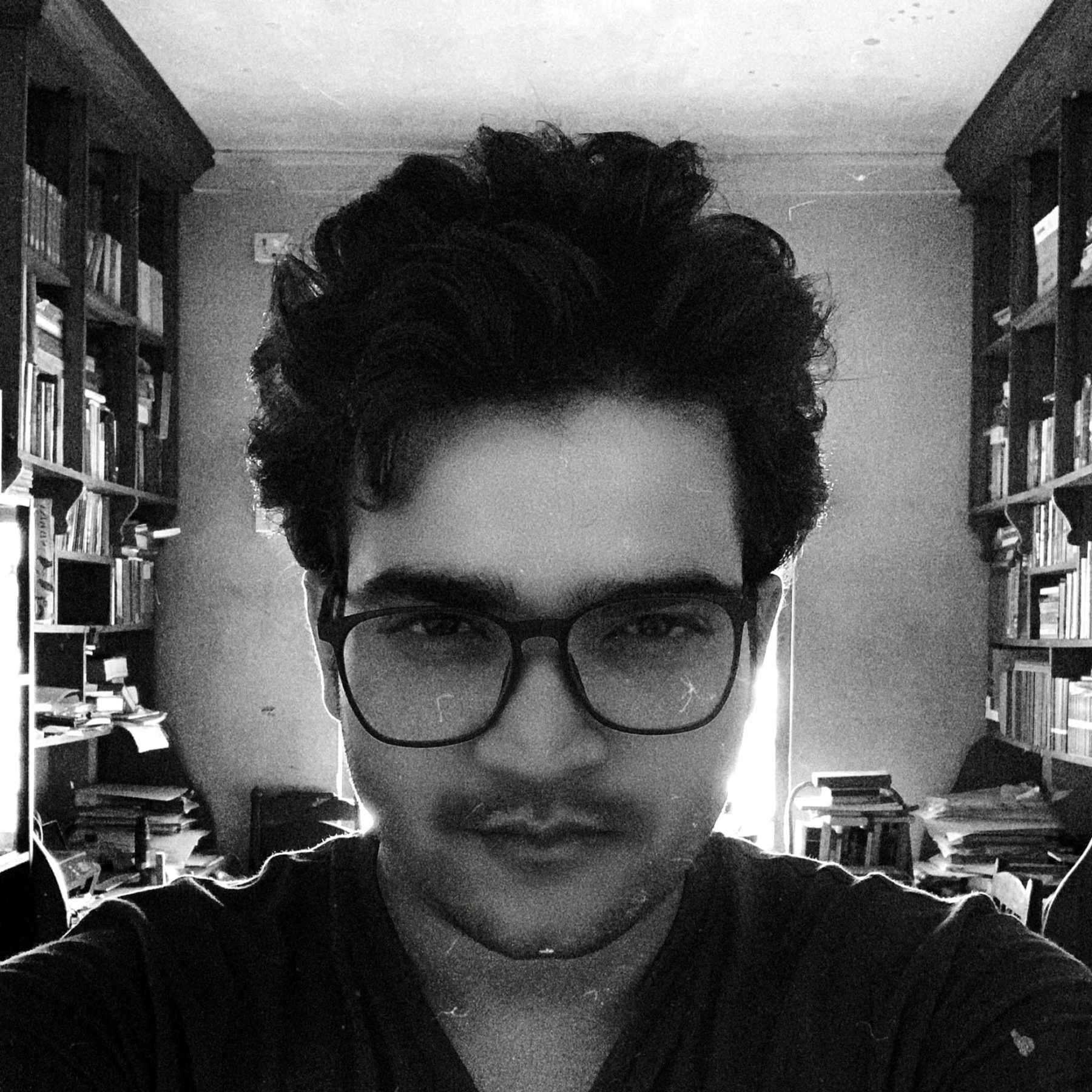
Zeyad Masroor Khan’s City on Fire : A Boyhood in Aligarh is a compulsively readable personal account of coming of age as an Indian Muslim man and, at the same time, it is also an oral history of Aligarh, writes Drishya Maity.
Zeyad Masroor Khan’s memoir City on Fire: A Boyhood in Aligarh begins with the haunting memory of a brutal, bloody riot that engulfed Farsh Manzil—Khan’s ancestral home and the “unofficial line of control” between Hindu-majority Kanwari Ganj and Muslim-majority Upar Kot—when his sister was pregnant with her first child, and ends with a question: when a young Khan asks his father why he didn’t leave Aligarh for Pakistan like his brothers had, his father responds, “How could I ever live if I left my home?”
In the 300-odd pages in-between, Khan takes us through his formative years in Aligarh (Childhood and Boyhood, Parts I and II of the book) and Delhi (Manhood, Part III of the book) as a Muslim man, and examines, among other ideas, the very notion of what it means to be a Muslim at home in India today — especially in a city like Aligarh, where, in Khan’s words, “the idea of Pakistan is said to be born”.
Khan’s Aligarh is a city where the banality of evil bares its face, where communal violence is a way of life and riots break out with alarming regularity, where neighbours one knows turn murderous when a clash breaks out, and families are forced to abandon homes that are set on fire during riots to save their lives, where the only person standing between an angry Hindu mob and a school bus full of Muslim children and teachers is a Hindu man who refuses to open the door and allow a massacre.
There are echoes of the exiled Austrian-Jewish writer Stefan Zweig here—after all, history repeats itself—who in his posthumously-published memoir The World of Yesterday wrote about losing Vienna to the Nazis in the prelude to World War II with a similar foreboding presentiment of the forthcoming catastrophe. But Khan is far more precise and unsentimental in his examination of the rot at the foundations of Aligarh—and Indian society at large—where, instead of fostering shared cultural values, the fraught co-existence of Hindus and Muslims in close proximity often creates mistrust, malice, and deep antipathy towards the other which inevitably fester into riots.
If I had to sum up City on Fire in a single word, I’d choose the Welsh word hiraeth,which refers to a deep longing for something, someone, or somewhere that is now long gone or perhaps never was — an yearning for ancient places to which we cannot return and our grief for them. But that would be too simple, and this is not a simple book. It is a compulsively readable personal account of coming of age as an Indian Muslim man in an increasingly communal, majoritarian, and intolerant country where Muslims are so often and so easily alienated, isolated, othered, and vilified for how they speak, pray, dress, eat, and live their lives simply because of their faith, yes, but it is also an oral history of Aligarh told, at times, with sardonic tongue-in-cheek humour, and more often with the tenderness of a citizen already grieving and grappling with the loss of his city. As I sat in my study after turning over the final pages of City of Fire, I could not help but think of the following lines from the 20th century Greek Alexandrian poet—and like Khan, also a journalist—Constantine P. Cavafy’s 1911 poem The God abandons Anthony in which Cavafy explored and examined a similar sense of loss for Alexandria — the city of his birth:
“As one long prepared, and graced with courage,
as is right for you who proved worthy of this kind of city,
go firmly to the window and listen with deep emotion,
but not with the whining, the pleas of a coward;
listen—your final delectation—to the voices,
to the exquisite music of that strange procession,
and say goodbye to her, to the Alexandria you are losing.”
The many personal anecdotes Khan candidly recounts in City of Fire are laced with the same lingering sense of loss and yearning. Except—unlike Cavafy’s hero who accepts the loss of his city with grace and courage—Khan subverts his sense of loss and asserts his hope for Aligarh on the last pages of his memoir. He writes:
“I will never have the courage to completely abandon my home, Aligarh — a beautiful curse, the city that I loved and hated but made me what I am today, the city where my father had chosen to stay and where he was buried. I was sure, like a phoenix, Aligarh would rise up again from the ashes, until it found a way to heal itself and all of us inside it.”
Pick up Zeyad Masroor Khan’s City on Fire from any Kunzum store or WhatsApp +91.8800200280 to order. Buy the book(s) and the coffee’s on us.


By far the best review.